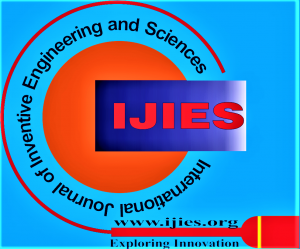![]()
Digitalization and Decarbonization of Sri Lanka’s Electric Power System: A Way Forward for Sustainability
Chamil Edirimuni
Eng. Chamil Edirimuni, Department Electrical, Ceylon Electricity Board, Nisala Pedesa, Colombo, (Western Sri Lanka), South Asia.
Manuscript received on 22 August 2024 | Revised Manuscript received on 14 September 2024 | Manuscript Accepted on 15 September 2024 | Manuscript published on 30 September 2024 | PP: 1-4 | Volume-11 Issue-9, September 2024 | Retrieval Number: 100.1/ijies.K997213111024 | DOI: 10.35940/ijies.K9972.11090924
Open Access | Editorial and Publishing Policies | Cite | Zenodo | OJS | Indexing and Abstracting
© The Authors. Blue Eyes Intelligence Engineering and Sciences Publication (BEIESP). This is an open access article under the CC-BY-NC-ND license (http://creativecommons.org/licenses/by-nc-nd/4.0/)
Abstract: The global energy landscape is undergoing a transformative shift driven by the dual imperatives of digitalization and decarbonization, essential for creating sustainable and resilient power systems (Lichtenthaler, 2021, [1]). This transformation is particularly critical for developing nations like Sri Lanka, where the integration of smart technologies and renewable energy sources can significantly enhance system efficiency and contribute to a robust response to climate change challenges (Lichtenthaler, 2021, [1]). This paper examines the potential of leveraging advanced digital technologies—such as artificial intelligence, big data analytics, and the Internet of Things—to optimize energy management and facilitate a swift transition toward a low-emission economy in Sri Lanka, while addressing the socio-economic implications of this transition. Furthermore, this study highlights the importance of fostering a circular economy through these technological advancements, emphasizing that innovative solutions can not only improve energy efficiency but also contribute to broader sustainability goals, ensuring equitable access to resources and combating the adverse effects of climate change. Through this lens, the investigation underscores the necessity of a holistic approach that integrates digital transformation with sustainable practices, enabling the decoupling of economic activity from resource depletion and environmental degradation, thereby fostering a resilient energy future for Sri Lanka.
Keywords: In Sri Lanka, Lichtenthaler, Through, Smart Technologies
Scope of the Article: Energy Harvesting
